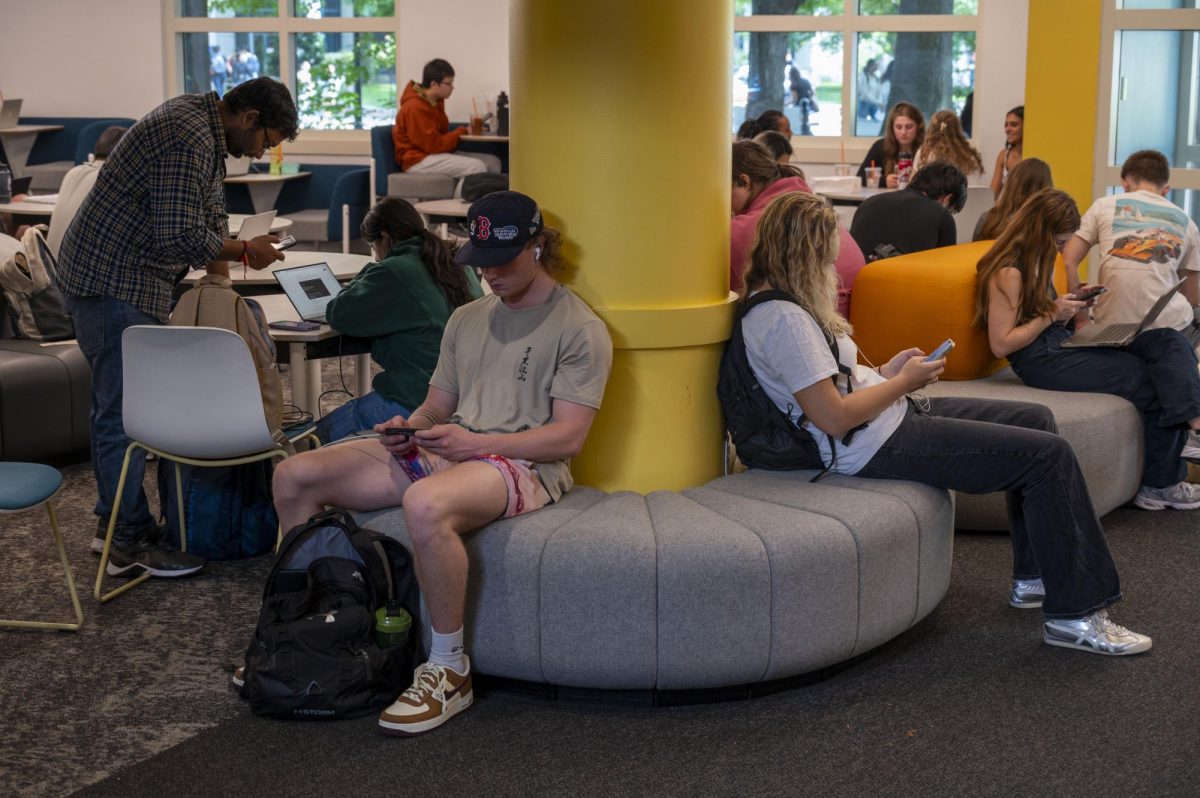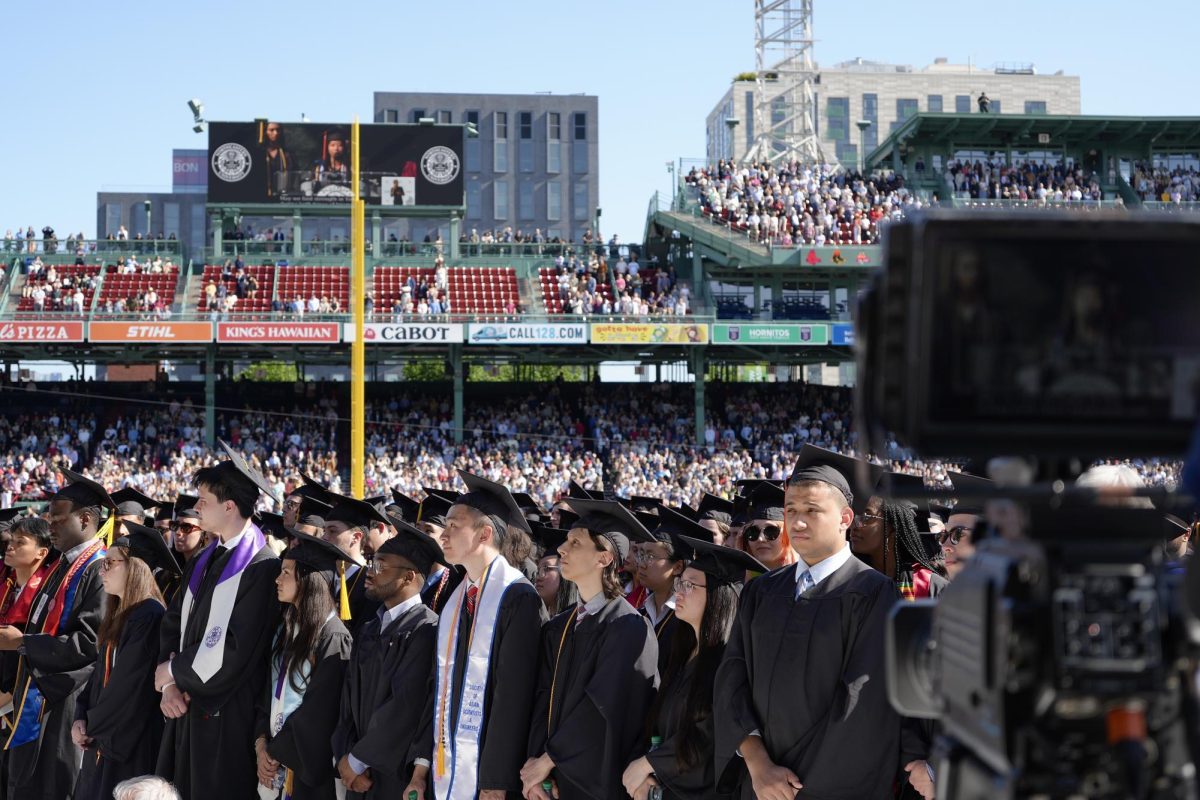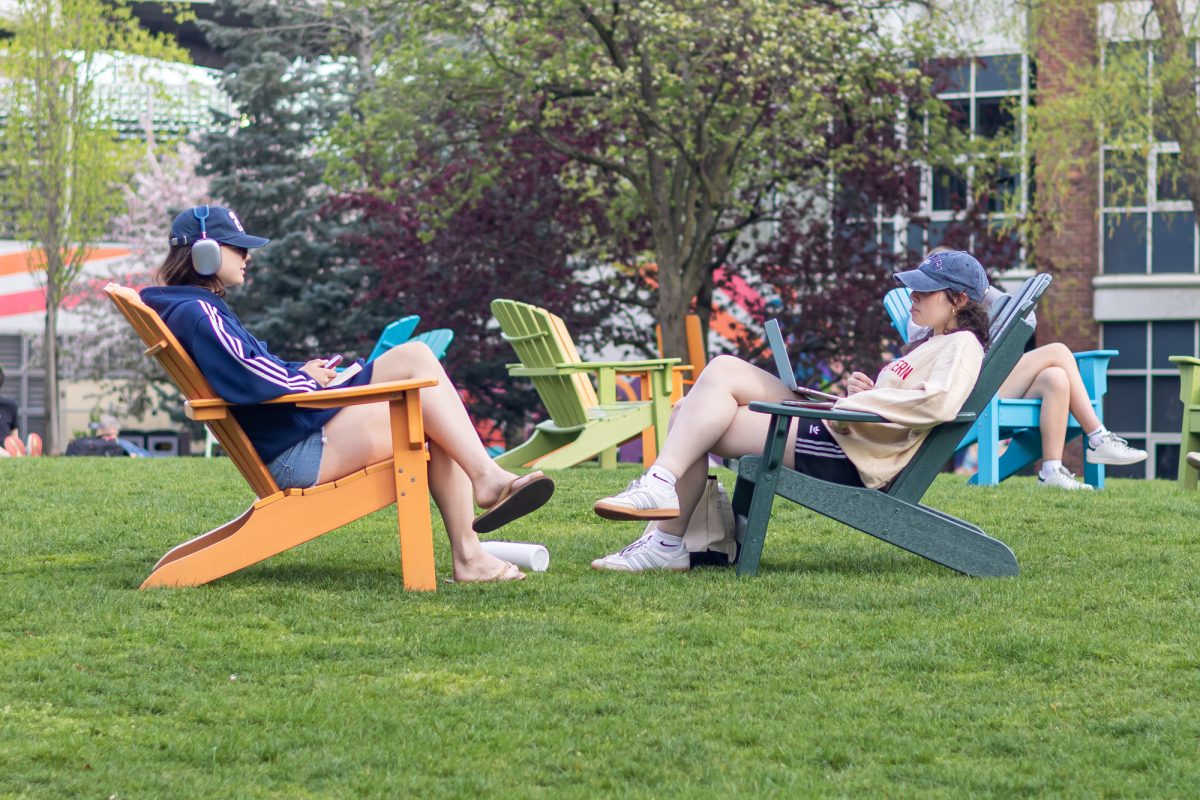It’s hard to think of a time when technology wasn’t glued to our hands and a magnet for our eyes. I remember being a little kid, playing Brick Breaker on my mom’s Blackberry, waiting for cheerleading practice to start because I’d already finished my homework or forgotten to bring a book with me. When my mom got her first iPhone, spending 20 minutes on it was new and exciting, not a small fraction of an integral part of my daily life.
Now, having owned an iPhone for years, it feels natural to pick it up whenever I have a few free minutes. In growing up alongside the rise of technology, our generation has watched screen times rise. But I’m grateful that technology wasn’t the default method for amusing us when we were little.
I have a theory that most Northeastern students were the types of children who read excessively, not just because we were academic overachievers but because it was fun for us. But kids today don’t seem to share the same sentiment. We’ve all fallen victim to the trap of technology, but children now suffer the consequences far more than we did at their age.
Kids simply aren’t reading anymore, and it’s largely due to the fact that they are spending an excessive amount of time in front of screens. Social media platforms, such as TikTok and Instagram, offer a source of instantaneous entertainment that reduce children’s attention spans. It’s hard to get a child invested in a book if they’re used to media existing in a short-form and visually appealing way. Hundreds of thousands of words of carefully thought-out plot in a book can no longer compete against a minute-long video that almost immediately gets to the point.
To make matters worse, with a lack of reading comes reduced literacy and critical thinking skills, which is incredibly worrisome for the future generation.
There was a large internet discourse that made its way onto Tumblr and, more recently, TikTok (ironic considering the topic of this op-ed, I know) centered around the statement “Maybe the curtains were just blue.”
The discourse started with a meme critiquing the literary analysis that students are often asked to do in high school, where meaning is given to seemingly inconspicuous details of stories. In this case, the argument was being made that the hypothetical curtains being blue wasn’t representative of sadness — the curtains were just blue. I initially perceived the statement to be a sarcastic dig at high school English teachers’ devotion to symbolism. But, many individuals contributing to the discourse seconded the idea that writing doesn’t contain the supposed deeper meaning conveyed by their high school English teachers, and that concerned me. It seemed like it was widely agreed upon that writing doesn’t have to be, nor should it be, intellectualized.
So not only are kids paying attention to their phones in school instead of their classes, but they don’t see the value of what’s being taught to them.
I think this comes as a result of the fact that shorter pieces of media don’t allow for opinions and critical thoughts to be formed outside of the information directly provided by the creator’s commentary. Individuals move onto the next post without really considering what they’ve just watched. Analysis stops as soon as the video you’re watching does — that is, if analysis begins at all. Reflection is no longer a natural response to media anymore because there is so much of it.
As a result, younger generations are starting to see things in a very black and white way, where opinions are mutually exclusive, leading to online debates that seem to be born out of spite and are based on a limited amount of knowledge.
But how satisfying is internet discourse and mind-numbing content as a source of entertainment? (I’ll give you a hint: It’s not satisfying at all.)
The problem is that no one allows themselves to be bored anymore. It’s far too easy to invest one’s self in the world of another person or fight with strangers on the internet. No one ever just sits with themselves and their own thoughts because you don’t have to when there’s millions of ways to entertain yourself in your back pocket.
This is something I’ve been working on myself lately — I try to spend 10 minutes every day doing absolutely nothing. No phone, no music, no school work, just me sitting in silence. It sounds ridiculous, but it’s been of tremendous benefit. In those 10 minutes, I can slow down and actually think in real time rather than having a million confounding thoughts open in my mind like tabs on my phone.
I’ve also noticed this practice has actually encouraged me to tend to responsibilities like homework or laundry that I’ve been putting off rather than continuing to procrastinate on my phone. Doing nothing makes you realize how long 10 minutes really is, and how much you can do in that amount of time if it’s not mindlessly wasted on social media.
I think the younger generations would benefit from boredom even more than I have. They could focus more on school and their literacy, and they could develop hobbies that have nothing to do with technology and everything to do with being curious and creative.
It would be a shame to have an entire generation whose only memories of their childhood are of a screen in front of their face. It would also be a shame for them to not be equipped for adulthood as a result. A little bit of boredom is necessary for all of us, but crucial for the betterment of younger generations moving forward.
Kara Orsini is a fourth-year health sciences major and columnist for The News. She can be reached at orsini.k@northeastern.edu.
The Huntington News is dedicated to serving the Northeastern University community with original, professional reporting and creating an environment in which student journalists can learn from one another. Support an independent, free press at Northeastern University with your donation today.


















